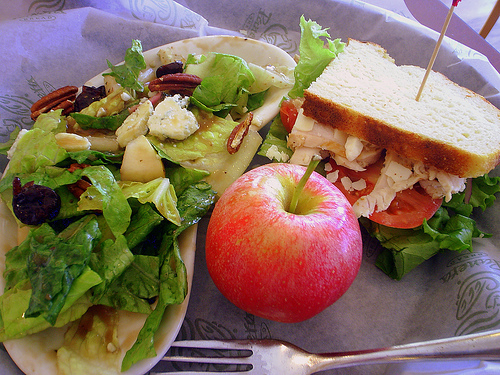Eat right, nurture good bacteria in your gut
 Washington, Oct 22 : Eating right, not supplements, is a sure way of keeping your good bacteria in fine fettle.
Washington, Oct 22 : Eating right, not supplements, is a sure way of keeping your good bacteria in fine fettle.
It is best to get the bacteria you need from healthy food, rather than taking expensive and potentially ineffective supplements, says Gail Cresci, author of a new study and dietician and assistant professor of surgery, Medical College of Georgia (MCG).
"Consumers are buying stuff like crazy that is probably not even helping them and could potentially hurt them," says Cresci, who bagged this year's 'Excellence in Practice Award for Clinical Nutrition by the American Dietetic Association.
There is even mounting evidence that a healthy bug in the gut helps maintain a healthy weight. Studies have shown, for example, that when bacteria from a genetically fat mouse are placed in a lean germ-free mouse, it gains weight without changing its food intake.
Increasing awareness of the benefit some of these organisms play in sickness and in health has resulted in an explosion of prebiotic and probiotic additives and products marketed directly to consumers.
It's also created confusion -- even among nutrition and other healthcare experts -- about how best to use them, says Cresci, who prescribes them to help surgery patients recover and works in the lab to learn more about their potential.
She equates the good bacteria in your gastrointestinal tract to another living being inside that helps keep you healthy. "If you do good by your bacteria, they will do good by you," Cresci says.
There are about 800 bacterial species with more than 7,000 strains inhabiting the average gut. Even though many sound similar they likely aren't.
For instance, a little Lactobacillus acidophilus combined with some Lactobacillus bifidus, for example, has been shown extremely beneficial in preventing antibiotic-induced diarrhoea while Lactobacillus bulgaricus with some Streptococcus thermophilus is useless.
Cresci says a good daily diet has 30 percent or less of calories coming from fat, with saturated fats comprising no more than 10 percent of that. The majority should come from monounsaturated fats such as olive and canola oils, said an MCG release.
Cresco advises eating dairy products to ensure adequate protein, calcium, and other nutrients, besides taking 25-30 grams of fibre, derived from fibre-rich foods like whole grains and fresh fruits and vegetables, for vitamins and minerals.
These findings were presented at the Food & Nutrition Conference & Expo in Denver. (IANS)